

The Park Slope “Gold Coast” mansion owned by the Brooklyn Society for Ethical Culture for the last 75 years recently hit the market for $30 million — which would break the record for the most expensive home sale in Brooklyn history if sold. The four-story building at 53 Prospect Park West includes 5,724 square feet of interior space, as well as the “largest private garden in Brooklyn,” according to the listing. The building on Prospect Park West, with a pair of pedestaled lions keeping guard in front, has quite a rich history dating back to the turn of the 20th century.
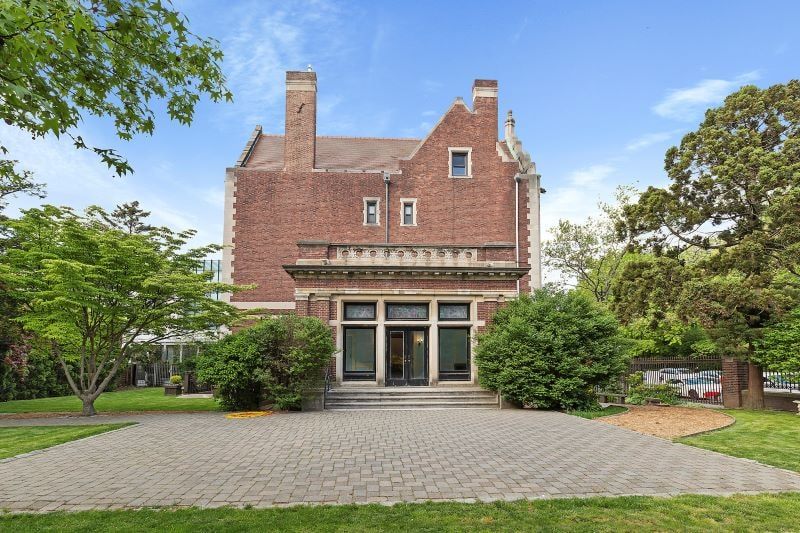
The borough record for the most expensive property was set in January with the $25.5 million sale of a townhouse at 8 Montague Terrace in Brooklyn Heights. The home was sold by Vincent Viola, the owner of the Florida Panthers, and his wife Teresa, an interior designer.
Completed in 1901, three years after Brooklyn joined New York City, 53 Prospect Park West was built by architect William Tubby, who designed some of the buildings on the Pratt Institute’s campus. The brick-and-limestone structure is a rare example of the neo-Jacobean style, which made the home quite unique among the other opulent “Gold Coast” homes of the area. It was commissioned by William H. Childs, a prominent financier and founder of the Bon Ami Company, as well as a key supporter of Teddy Roosevelt’s Progressive Party. His family stayed in the house until 1947 when the nonprofit Brooklyn Society for Ethical Culture bought the home after Childs’ wife died.
“As the story goes, William Childs had a hay and feed store. He sublet part of the store to a man who made a cleansing powder,” Judith Lief, the Corcoran Group broker with the listing, told Untapped New York. “The man found he couldn’t pay his rent and gave up the space leaving behind some cleaning powder, containers and the formula. At some point, women started writing and asking for the cleansing powder, so William Childs took up production. He made his fortune in Bon Ami Cleansing Powder, still in use.”
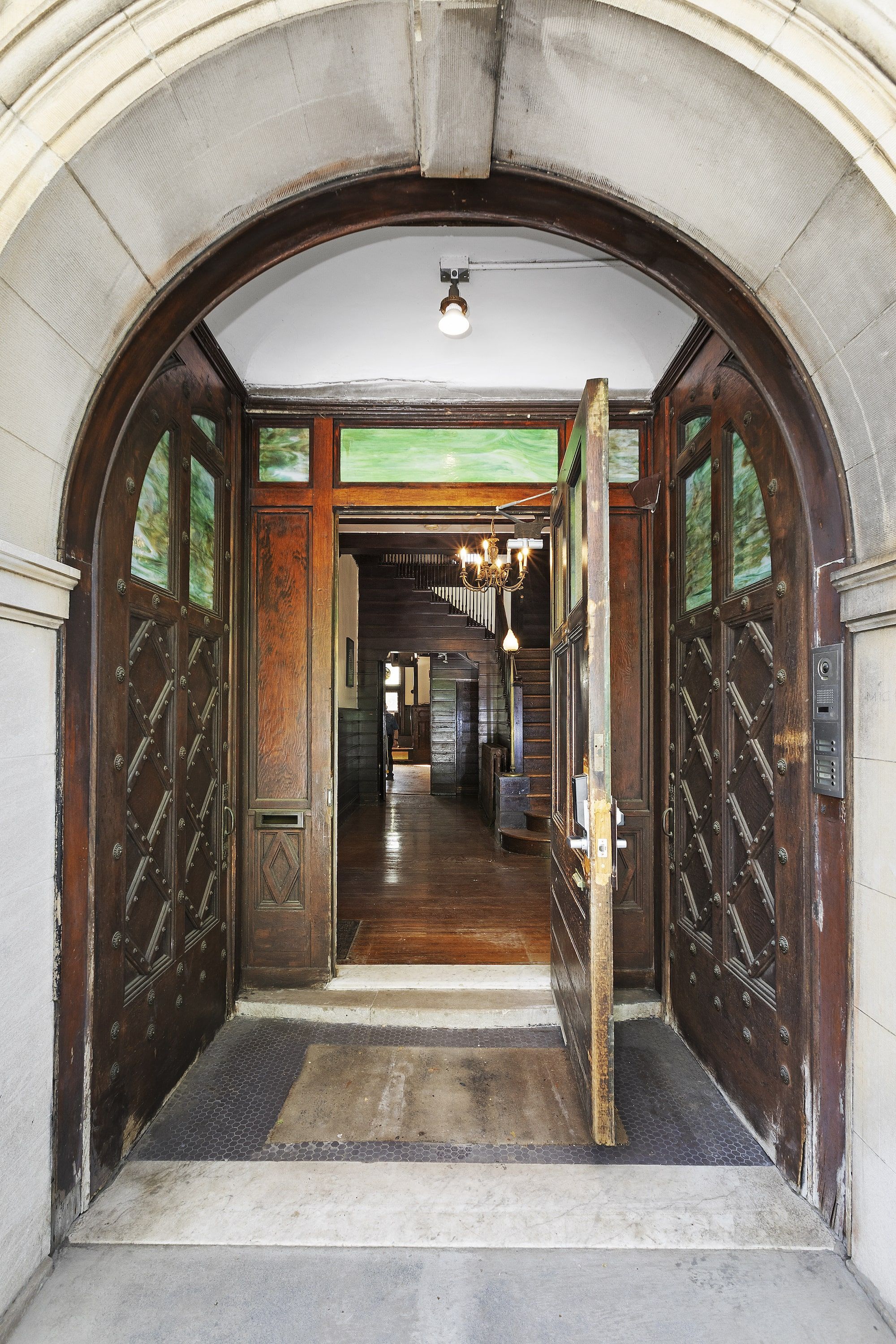
The Ethical Culture movement, committed to celebrating values of social justice, compassion and the human spirit, has its roots in New York City. Founded in 1877 by German-Jewish intellectual Felix Adler, the New York Society for Ethical Culture advocated a morality separate from religious doctrine that could be expressed through congregational organization, behavioral codes and rituals. The Ethical Culture movement counts over 22 societies and fellowships around the country.
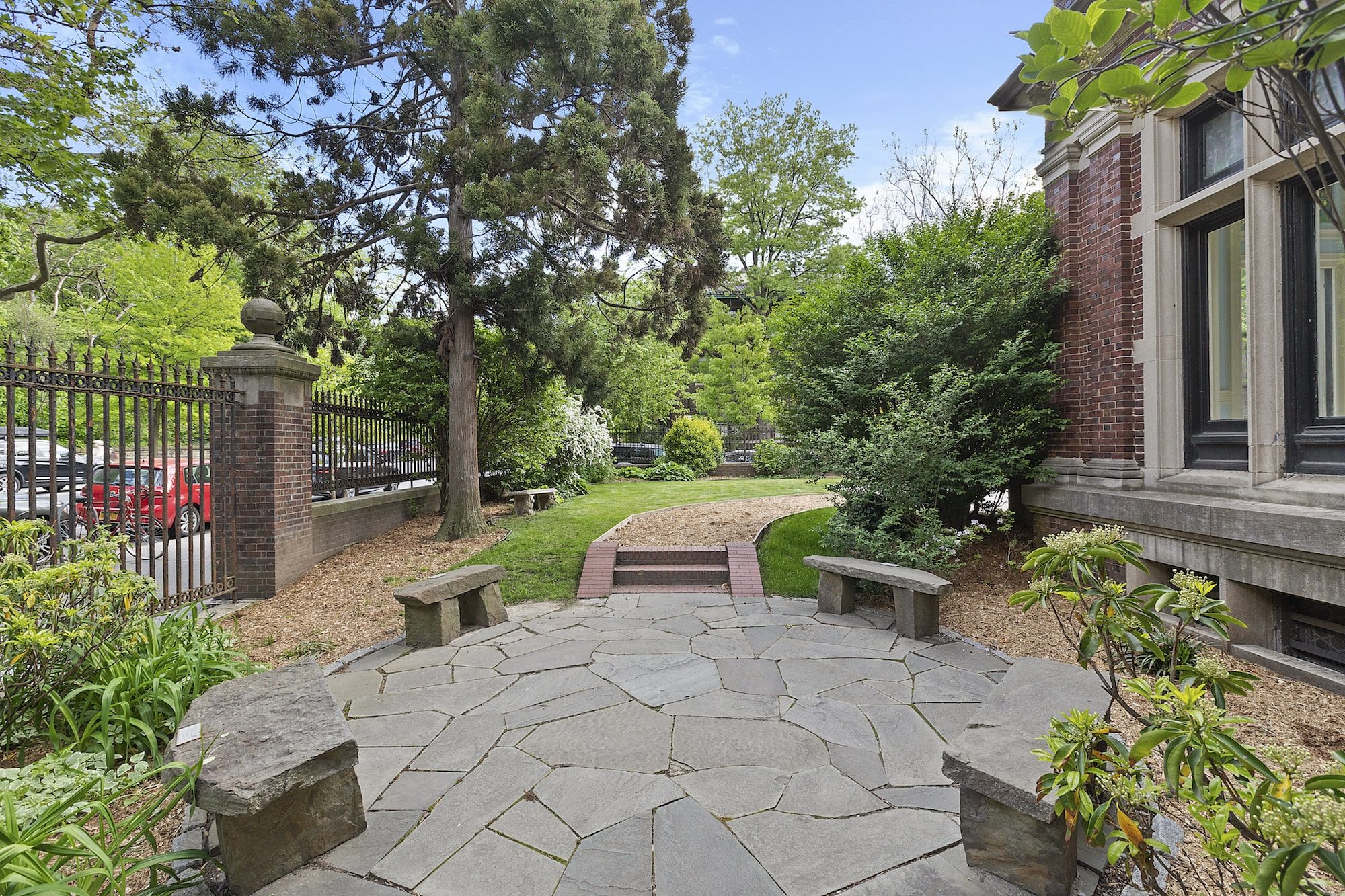
One of the New York Society for Ethical Culture’s first projects was the establishment of a free kindergarten, the Workingman’s School, in the Bronx neighborhood of Riverdale. In 1895, it was reorganized as the Ethical Culture School. To accommodate the upper grades, the Fieldston School was built in 1928, and by 1933 the Fieldston Lower School joined the Riverdale campus. And just across from the Fieldston School is the Riverdale-Yonkers Society for Ethical Culture, founded in 1948.
The Brooklyn Society for Ethical Culture was founded in 1906 to create a supportive community in the borough. The organization has used the mansion as their meeting house, but other venues like weddings and community festivities have been hosted here. The Society has not commented on exactly why they have left the historic property, although Judith Lief, the Corcoran Group broker with the listing, told the New York Times: “They’ll be looking for another location that’s more manageable. It’s a large, expensive property to maintain.”
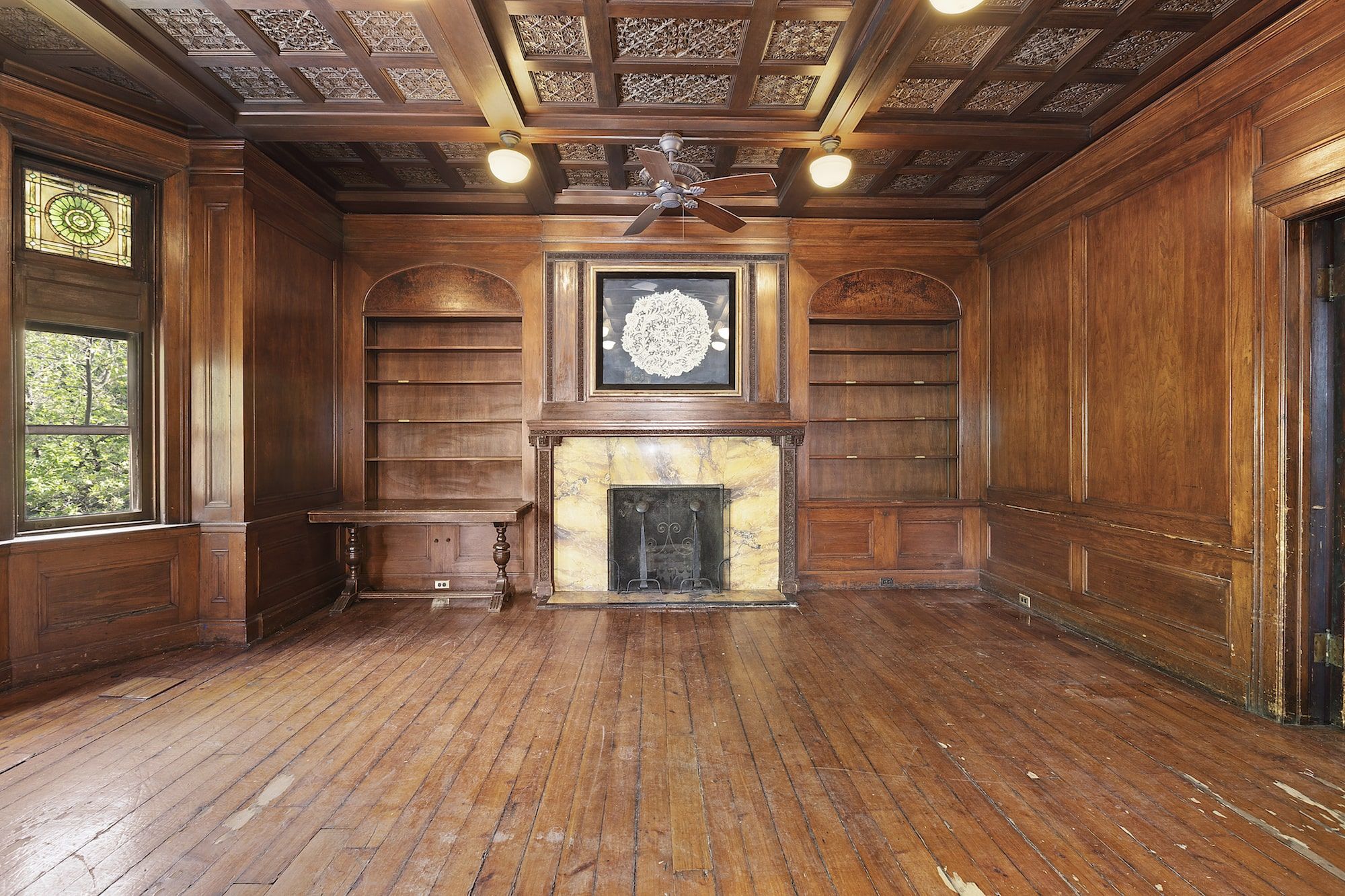
“A glorious sunroom was added in 1907 on the garden level; dramatic views of the park and Brooklyn are seen from every window,” the listing says. “Many original architectural details are highlighted by the soaring heights of the oversized rooms. They include hand-carved walnut ceilings, a curved stair with carved scabbards as balusters, monumental marble fireplaces, hand-painted friezes, leaded-glass windows, a six-window bay with terrace, and so much more. The 9,800 square-foot garden includes a carefully tended landscape that wraps around three sides of the building. Verdant with perennial shrubs, mature trees and an expansive lawn, there is also a paved terrace and a meditative sitting area with stone benches.”
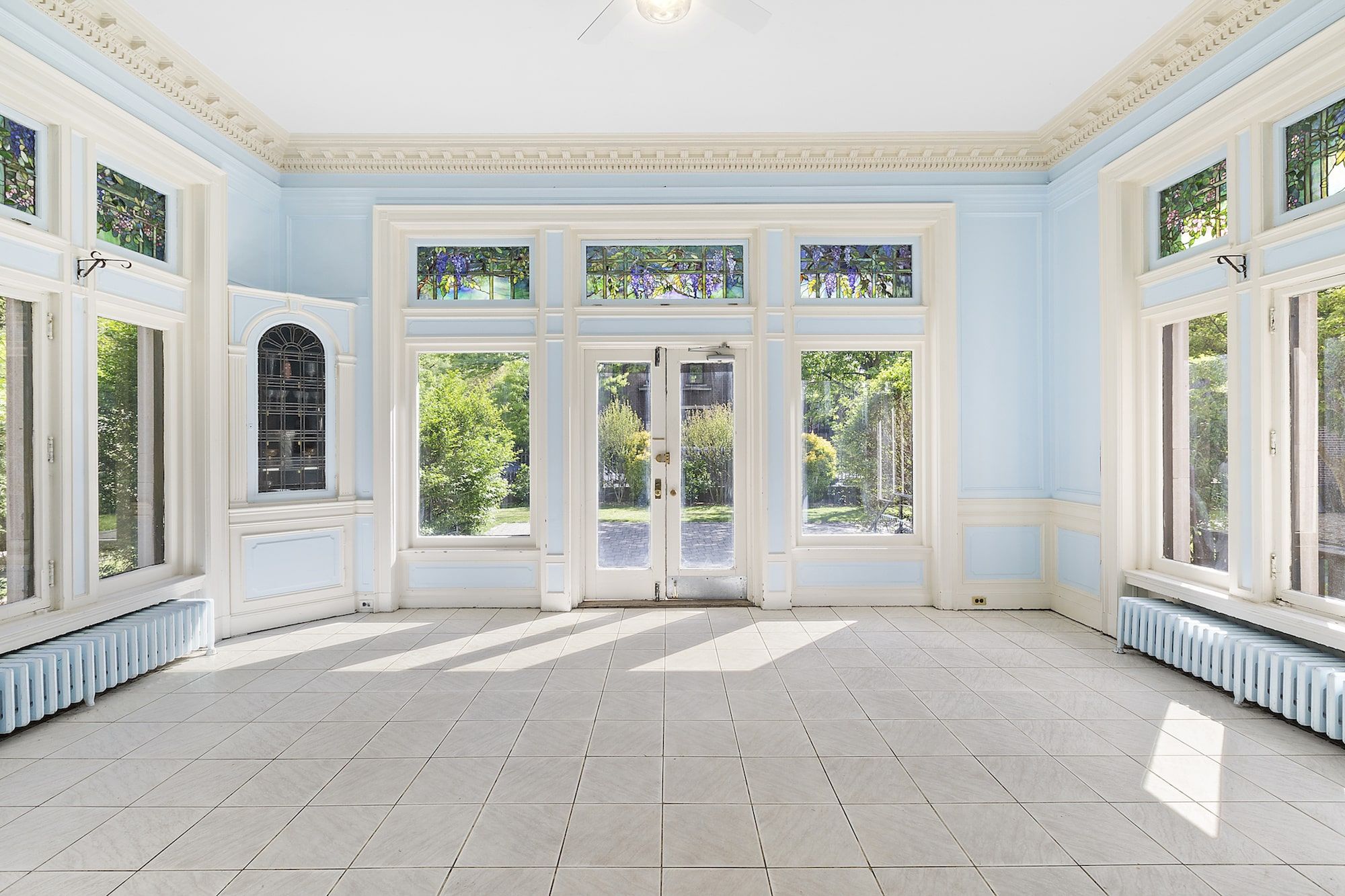
53 Prospect Park West could serve as an exquisite six-bedroom private home, or it could be used potentially as a museum, library, school or concert hall. But for now, the historic mansion overlooking Prospect Park will remain on the market until an ambitious buyer breaks the Brooklyn home sale record.
Next, check out the Top 10 Secrets of Park Slope!

